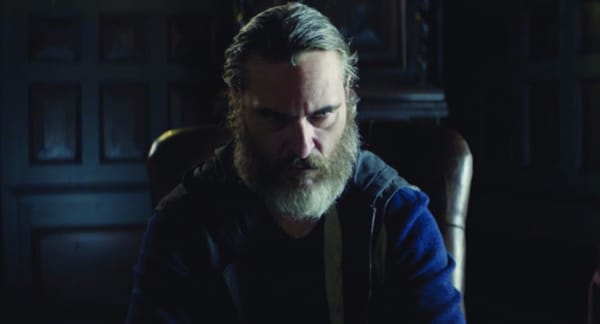Black Mirror – What is it good for?
As the real world gets progressively more insane, do we still need dystopian sci-fi?

While no Imperial Student will be a stranger to technology, I imagine not all share Black Mirror’s pessimistic view of tech as an existential threat. Despite creator Charlie Brooker claiming that his show is more warning than fear-mongering, the show focuses on how technology exacerbates the flaws in human nature. Rather than taking the Wachowskian approach to dystopia that was popular at the turn of the century and have technology enslave humans, Black Mirror shows us what happens when technology liberates us to be the worst versions of ourselves; it takes plausible ideas based in our own reality and extends those to what could happen soon if we don’t sit up and take notice. But as we enter a surreal age of misinformation, where TV stars rule countries and automation slides ever closer to reality, is a dismal forecast the best way to inspire a healthier discussion about technology and its place in our future?
Some might argue that Black Mirror’s bedtime stories aren’t necessary in today’s political climate. The show does have a long history of seeming to predict notable news stories: David Cameron’s pig fracas could have inspired the central plotline in The National Anthem, China’s proposed social rating system is a direct rip of Nosedive, and many might find the election of an oddly-coloured, populist television star in The Waldo Moment vaguely reminiscent of President Trump’s surprise election win late last year. These bizarre coincidences are less indicative of Brooker’s ability to read the future, however, than they are of an increasingly surreal politico-technological landscape. Research shows that we enjoy horror and thrillers as it allows us to experience these emotions in a controlled environment, and probably also explains my love of crying at Marley and Me. But as that controlled environment starts to looks more and more like what we see on our screens, these films and shows become more than just a cathartic release of emotion. It’s as if that girl from The Ring has just crawled out of the television, except she’s an iPhone with facial recognition software.
Black Mirror can only get as scary as Charlie Brooker can imagine, but reality is not bound by one man’s imagination, and technology seems primed to make any episode look quite cosy in comparison. Just this year we’ve seen how misinformation can take control of electoral processes (I know it’s not just me that has an old aunt or weird cousin that shared some bullshit about Corbyn). Meme culture promotes opinion over fact, as being in on what is effectively a glorified inside joke is more appealing than engaging in discussion. Rightly or wrongly, the Momentum/Moggmentum movements have already played a huge part in June’s general election, increasing the youth vote by 20% this summer. The part that the internet and memes have played is not to be understated.
“Black Mirror can only be as scary as Charlie Brooker’s imagination, but reality is not bound by one man's imagination”
This phenomenon of confirmation culture is not even restricted to followers of political candidates. Trump’s oft repeated “Fake News” is not only emblematic of the problem, but also the reason many are distrustful of news that don’t serve to confirm what they already believe. Thousands see this disregard for traditional news media to be refreshing: a welcome break from the boring bureaucracy of politics. Expensively produced execution and recruitment videos on IsisTV (Channel 608) also serve to make politics and war more exciting, bringing the horrors of the battlefield more in line with what we’ve come to expect, except without James Bond saving the day. Far from encouraging productive debate, platforms like Twitter and Facebook only serve to amplify what we are already comfortable in believing and keep our echo chambers soundproof. News stories are shared a thousand times before someone looks at the sources. Is it any wonder we turn to TV for nice, simple problems to solve like swarms of killer bees?
Brooker isn’t alone in his mistrust in humanity’s obsession with the advancement of technology. Black Mirror is just the latest dystopian sci-fi, counting classics like 1984, The Matrix, and Blade Runner as its ancestors. In many of these early dystopias, humans eventually win out against tech, and return to a harmonious world, but Black Mirror does not afford us this reassurance, choosing to emphasise the control devices can and will have if our usage of them goes unchecked. Like its predecessors, the show focuses on how the way humans use technology is bad, rather than technology being inherently awful. This suggests that dystopian horror is not a given, as long as we use tech for good, rather than compounding the worst parts of human nature.
“We must take appropriate action to ensure that when these technologies do take over we are ready”
Not all sci-fi landscapes set in the near future imagine it as a haunted house of devices. The most positive vision of our future in recent memory is Spike Jonze’s Her. Sure, the neon lights and high-rise buildings are present as we’ve come to expect, but Her gives us a bright walk through what life could look like. This optimism is reflected in the films colour palette: bright blues and deep reds mirror the setting, where technology allows people to pursue artistic endeavours. Wide open cityscapes are a welcome contrast to the cramped alien worlds that usually occupy our screens. This future could be ours in the next 20 years, provided that we are able to strike the right balance with automation.
The right approach to a world increasingly dominated by and dependant on our computers is somewhere between these two extremes. Dating your operating system is no better advice than giving up tech for good. We must be aware of the dangers that automation, virtual reality, and AI pose to our happiness, and take appropriate action to ensure that when these technologies do take over (and I believe they will) we are ready for them. My prognosis is a return to the excitement for technological advancement popular in the 1950s, with a healthy dose of scepticism of human self-regulation.
Black Mirror is available on Netflix and with any malevolent consciousness that may or may not be taking your job.









